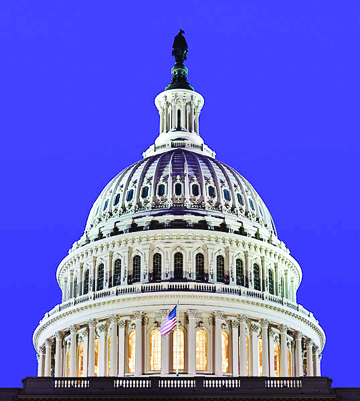With about 12 hours until the government shutdown, Congress remains at loggerheads over healthcare reform, even though a shutdown will not mean an end to the legislation, including the health exchanges scheduled to begin enrolling members Tuesday. The latest politicking play-by-play includes legislation which cleared the House Sunday, with a 248-174 vote to repeal the medical device tax and at 231-192 vote to put off implementation by a year.
Nevada Sen. Harry Reid said the bill has no future in the Senate, and the New York Times reports that Reid says he will not accept any effort to pare back healthcare reform. This includes the medical device tax, which has opponents on both sides of the political divide. The tax would bring in around $30 billion over 10 years, and is a vehicle for deferring some of the costs associated with the legislation.
Healthcare reform is being used as the peg over whether or not Congress will fund the government as a whole, an argument that will seem familiar considering last year’s tussles over the debt ceiling, which is about paying for bills already incurred as well as keeping things humming. Last year’s clashes provided short-term solutions, known as continuing resolutions, also known as CRs, which are short-term agreements to keep money flowing while elected reps make a deal.
The result of the last fiscal standoff was that automatic cuts, known as the sequester, went into action because Congress could not come to an agreement, and cut funding to programs including after-school programs, educators and first responders, among others. The idea was that both parties would find the cuts so undesirable they would have to make a deal, but they went into effect anyway.
Tuesday’s pending freeze is a similarly severe line, with anti-healthcare reform advocates saying they will sign off on a CR if healthcare reform is dinged or dented, and the opposition saying healthcare reform is non-negotiable. “Republicans must decide whether to pass the Senate’s clean CR, or force a Republican government shutdown,” Reid said in a statement.
The Wall Street Journal reported that the Democrat-Republican split is not totally clean, and that two democrats—Reps Jim Matheson of Utah and Mike McIntyre of North Carolina—supported delaying the law, while two New York Republicans, Reps. Chris Gibson and Richard Hanna, voted against the delay.
Legislation needs to clear both houses to go into effect. As the Journal noted, “There were no sign negotiations were being scheduled among congressional leaders,” as of last night.
“Senate Democrats have shown that we are willing to debate and vote on a wide range of issues, including efforts to improve the Affordable Care Act. We continue to be willing to debate these issues in a calm and rational atmosphere. But the American people will not be extorted by Tea Party anarchists,” Reid said in a statement.







